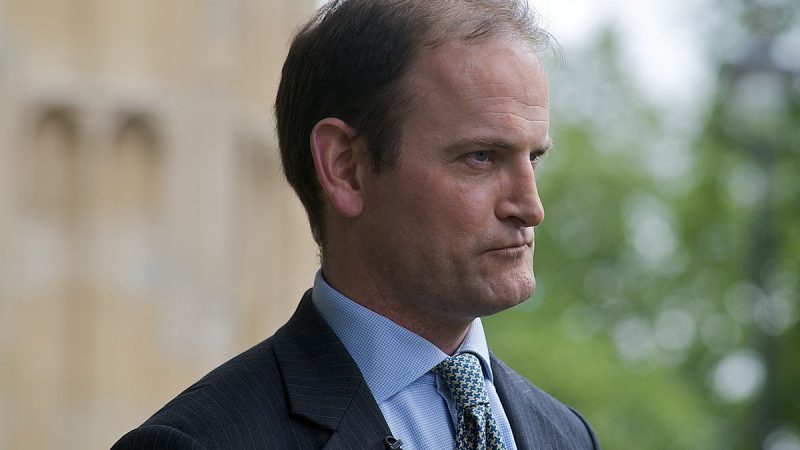The Government's trade strategy is for the shock deregulation of Britain. We have to beat it, writes Nick Dearden.

Last night, the House of Lords inflicted yet another defeat on the Government’s Trade Bill.
This bill has effectively been hanging around since 2017. It’s not a complicated piece of legislation, mainly just setting out the procedures for a trade policy outside the EU. The reason it has still not become law is that the Government is refusing to give MPs any meaningful power over trade policy.
MPs locked out
As things stand, MPs have no right to change the government’s objectives in trade talks, no right to see the negotiating papers which would allow them to hold the government to account, and no ability to stop a trade deal becoming law – however much they hate it.
Should we ever reach a trade deal with the EU or the US, MEPs and congressional representatives will have far more power over those deals than MPs. So much for taking back control.
This matters to all of us because trade deals today are massive affairs. Not restricted to bringing tariffs down, modern trade deals attempt to remove impediments to the free flow of goods, services and money around the world. That means they routinely interfere with a government’s right to regulate big business, and can be used to threaten food standards, public services and our ability to deal with climate change.
Thatcherite trade team
No wonder then that the British Government long ago identified trade deals as a means of forcing deregulation on post-Brexit Britain. And no wonder they don’t want either the public or parliament getting in the way of their plans.
In fact, they’ve stacked the board of trade with true believers, with Trade Secretary Liz Truss last week announcing former Tory and UKIP MP Douglas Carswell (pictured) and Dominic Johnson, a business partner of Jacob Rees-Mogg, as non-executive board members.
Carswell is an extreme free marketeer, who has referred to our health and education system as “the last vestiges of post-war rationing”, opposes renewable energy targets as “a fundamental problem to wealth creation“, and believes in slashing housing benefits and throwing housing entirely over to the market.
Dominic Johnson founded the multibillion Somerset Capital Management with Rees-Mogg in 2007. A self-described “egalitarian Thatcherite” who is well connected to the Conservative Party’s hierarchy – famously lending David Cameron his Chelsea townhouse. The Cameron ally was handed a CBE, and his fund’s focus on emerging markets gives him a keen interest in post Brexit trade deals.
The Trade Board’s advisors mirror these ideological leanings, including most controversially former hardline right-wing Australian Prime Minister Tony Abbott, who recently told a parliamentary committee his route to signing trade deals was not being “too preoccupied with labour standards and environmental standards”.
He’s joined by Daniel Hannon, former MEP and fierce free trader, who has promoted Britain as a “kind of Singapore” after Brexit, and helped pen a model US-UK trade deal which would, if implemented, destroy huge swathes of our economy, including farming, and would lay waste to public services. He’s another sceptic of attempts aimed at halting climate change.
Movement for democracy
All this against the backdrop of ‘free market’ think-tanks such as the IEA, the Adam Smith Institute, the Heritage Foundation, the Cato Institute and the American Enterprise Institute, who have enjoyed close relations with the Trade Secretary.
Parliamentarians are right to be alarmed that trade deals can be signed with virtually no checks and balances. The enormous scope of trade deals to fundamentally alter our regulations, and the fact the government is engaged in a large number of secretive talks. Combine this with the powerful and fanatical free marketeers driving their policy, and we have a deeply worrying situation.
Parliament has showed that it won’t take this lying down. That’s to be applauded. But peers are likely to be defeated when the bill returns to the Commons.
We need more. A powerful movement is already being built against the threat of a US trade deal, reaching across the Brexit divide, and there’s every chance we can indeed beat it. The more spanners we can throw into the Government’s free trade machine, the more chance we have of preventing their post-Brexit shock doctrine.
Nick is the director of Global Justice Now.
To reach hundreds of thousands of new readers we need to grow our donor base substantially.
That's why in 2024, we are seeking to generate 150 additional regular donors to support Left Foot Forward's work.
We still need another 117 people to donate to hit the target. You can help. Donate today.



